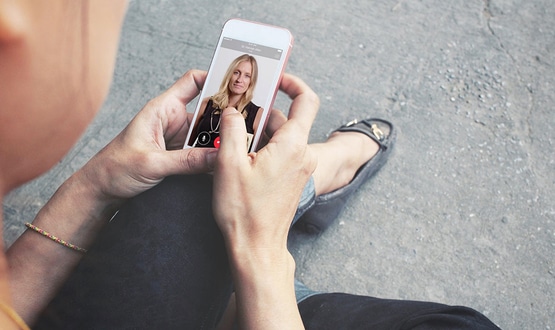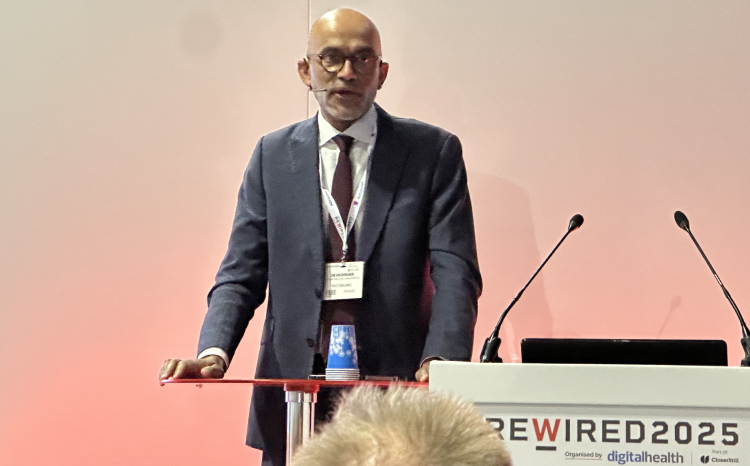Babylon and others removed from NHS Apps Library

Babylon and two other medical apps have been removed from the NHS Apps Library, with NHS England citing beta testing as the reason behind it.
The library is currently in a test version, with NHS England hoping to have it nationally available by the end of 2018.
However some apps featured in the library, which aims to steer patients towards trusted digital tools, have been dropped following the beta testing phase.
Juliet Bauer, chief digital officer at NHS England, said: “The NHS Apps Library is in beta or a public testing phase, and will continue to evolve accordingly as with any other project in development.”
Private online GP services app, Babylon, is among those which has been cut.
A spokesman for the company said: “Babylon supports the aims of the NHS digital apps library.
“Following a recent NHS assessment process, our app was in the very first group to appear in the Library.
“As the focus of the NHS Digital Apps Library changes over time, so the mix of apps that appears on it will evolve as well.
“Unlike companies who choose only to provide their health service privately to those who can afford it, Babylon’s technology and GPs are available through the NHS to all – free at the point-of-need, via GP at Hand and NHS Online.
“In providing a safe, high quality, convenient and tech-enabled service to people who choose us, Babylon helps reduce the pressures on hard-pressed NHS staff.”
Another app dropped was Now GP from the Now Healthcare Group (NHG).
Lee Dentith, CEO and NHG founder, said: “We understand the reasons why we have had to be removed, but we expect our app Now Patient (which has been created to help up to 15 million people living with chronic care conditions) to be in the Apple App Store in the coming weeks.”
The removal of these services has been welcomed by the British Medical Association’s GP committee chair, Dr Richard Vautrey.
“NHS England has done the right thing by removing these apps from their library. It’s important that the public and patients can be confident that NHS-recommended services are just that – NHS services,” he said.
“There has been a rapid expansion of digital services in recent months and it’s going to be increasingly important for national bodies to monitor and assess them.”
Another app to disappeared is Public Health England’s Sugar Smart, however Digital Health News understands the app has been renamed the ‘Food Scanner App’ and remains in the library.





8 Comments
Yes, as a patient, I’m happy for my data to be given to Trump himself if it means I get to see a GP. I mean all this data protection do-goodies… what world do they live on?!
There’s nothing wrong with the private sector capitalising on the NHS, it’s the way the NHS was set up from the start with GPs (private businesses) ruling the roost, after all!
We must not question commercial technological progress. We’ve money to waste on Brexit so why not give a hand out to those waiting to exploit us?!
[my serious point is that this article is so bias that it doesn’t even bother to ask NHSD to explain this stance for heaven’s sake!!]
We need to get serious about technotherapeutics. The app library is barely more than a list saying these apps exist and we like them. The evidence is lacking, the indications, effectiveness, side effects and interactions are all missing.
I know that’s a medical perspective, but I am, so no apologies.
I had a quick look at the apps offered for Mental Health. In the descriptions only one appears to mention evidence to support safety and efficacy. They may all have evidence to back them up but seems odd it’s not mentioned when they address serious and complex conditions/issues.
Both these private companies were reselling NHS services. As a consumer I don’t care whether it is powered by the NHS or not. All i care about is that I am able to speak to a GP without leaving my location for basic support.
There are no details about the change in content of the NHA Apps Library – or, indeed, that there have been any changes – on their website: are any details available – including whether the apps removed were previously labelled either “NHS Approved” or “Being tested in the NHS”?
And a further question: what is the mechanism – if any – for informing individuals who have downloaded an App from the NHS Apps Library that it has been frmoved from the site – especially if it was previously approved?
I think the whole idea of the apps library is flawed.
I do wish the NHS would listen to patients on this matter. Quality of services and outcomes are way more important than if it is state owned and operated, never-mind what logo it uses.
All this rhetoric about the NHS is protectionism. Universal care isn’t dependant on who operates the service.
Serious question.
Do you care about basic security – or who has access to your medical data?
I’m not necessarily against Apps: I am curious as to the criteria used by NHS Digital to include any App in the NHS App Library (especially as most have no NHS Approval), and equally on the criteria for removing them from the Library once in it.
Hve the inclusion criteria changed, or have problems come to light with the Apps removed?
Comments are closed.